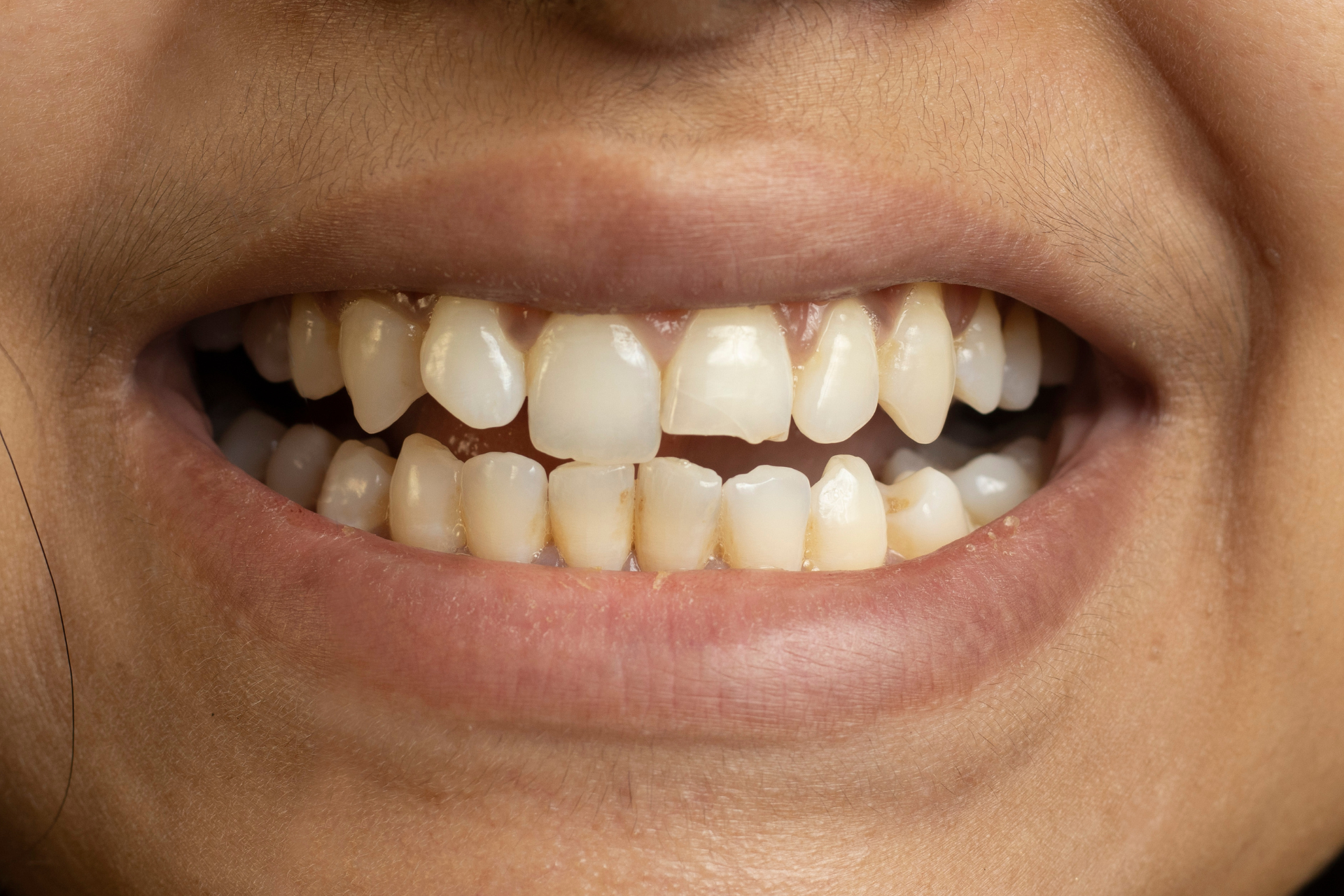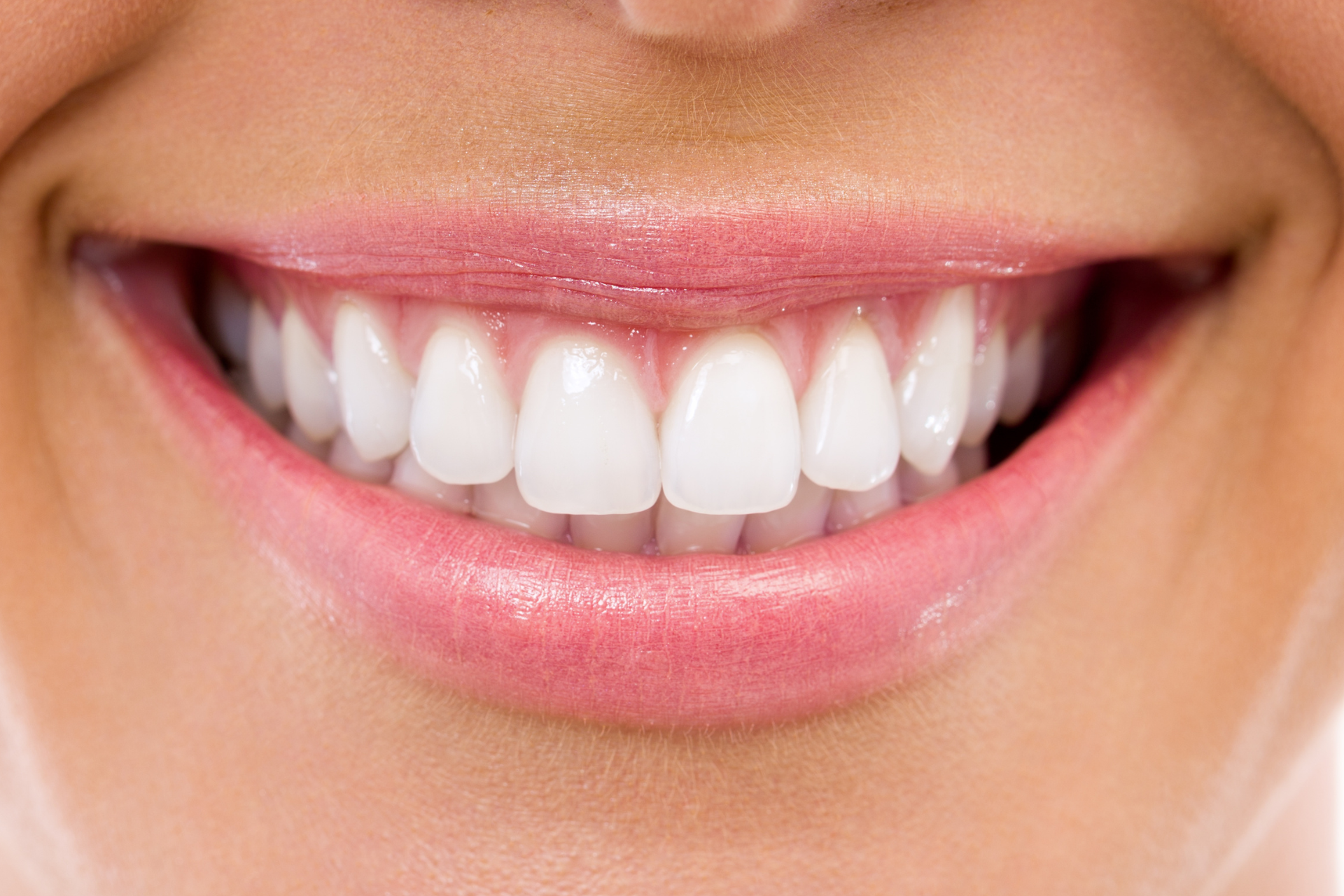How to Fix a Chipped Tooth


A chipped tooth can be a common dental problem that can cause discomfort and affect your smile. Understanding the causes, types, and symptoms of chipped teeth is essential for proper diagnosis and treatment. In this article, we will explore the different treatment options available for fixing a chipped tooth and discuss preventive measures to avoid future chipping. Here are the key takeaways from this article:
Key Takeaways
- Chipped teeth can be caused by accidents, tooth decay, or biting hard objects.
- There are different types of chipped teeth, including craze lines, enamel fractures, and broken cusps.
- Common symptoms of chipped teeth include pain, sensitivity, and rough edges.
- Diagnosing a chipped tooth involves a physical examination, dental X-rays, and sensitivity testing.
- Treatment options for chipped teeth include dental bonding, veneers, crowns, and in some cases, tooth extraction.
Understanding Chipped Teeth
Causes of Chipped Teeth
Chipped teeth can occur due to various reasons, including accidents, falls, or biting down on hard objects. Cosmetic dentistry and Dr. Chan Dentistry can also play a role in causing chipped teeth. Cosmetic dentistry procedures such as dental bonding or veneers may sometimes result in chipped teeth if not done properly. Similarly, if a dental procedure performed by Dr. Chan Dentistry is not executed with precision, it can lead to a chipped tooth. It is important to choose a qualified and experienced dentist to minimize the risk of chipped teeth during cosmetic procedures.
Types of Chipped Teeth
Chipped teeth can vary in severity and location. They can be classified into different types based on the extent of the damage. Cosmetic Dentistry and Dr. Chan Dentistry are two options for treating chipped teeth.
- Minor Chips: These are small chips that only affect the outer layer of the tooth, known as the enamel. They may not cause any pain or sensitivity, but they can still be a cosmetic concern. Cosmetic dentistry procedures, such as dental bonding or veneers, can be used to restore the appearance of the tooth.
- Moderate Chips: Moderate chips involve damage to both the enamel and the underlying dentin layer. These chips may cause sensitivity and discomfort. Dental bonding or veneers can also be used to repair moderate chips, but in some cases, a dental crown may be necessary for added strength and protection.
- Severe Chips: Severe chips extend deep into the tooth, exposing the nerve and causing significant pain. In these cases, a dental crown or even a tooth extraction may be required to restore oral health and function.
It's important to consult with a dentist, such as Dr. Chan Dentistry, to determine the best treatment option for your specific case.
Symptoms of Chipped Teeth
Chipped teeth can cause a range of symptoms that may vary depending on the severity of the chip. Some common symptoms include tooth sensitivity, pain or discomfort when biting or chewing, and rough or jagged edges on the affected tooth. In some cases, a chipped tooth may also cause tooth discoloration or visible cracks. If you experience any of these symptoms, it is important to seek dental care as soon as possible.
Cosmetic Dentistry and Dr. Chan Dentistry are two options you may consider for treating chipped teeth. Cosmetic dentistry focuses on improving the appearance of teeth, while Dr. Chan Dentistry offers a range of dental services, including chipped tooth repair. Both options can help restore the aesthetics and functionality of your chipped tooth.
If you are unsure about the best treatment option for your chipped tooth, it is recommended to consult with a dental professional who can assess your specific situation and provide personalized recommendations. They will consider factors such as the extent of the chip, the location of the tooth, and your overall oral health.
In some cases, a dental bonding procedure may be suitable for repairing a chipped tooth. Dental bonding involves applying a tooth-colored resin material to the chipped area, which is then shaped and polished to match the natural appearance of the tooth. This procedure is relatively quick and can often be completed in a single visit to the dentist.
Alternatively, dental veneers or dental crowns may be recommended for more severe cases of chipped teeth. Veneers are thin shells that are bonded to the front surface of the tooth, while crowns are caps that completely cover the tooth. Both options can provide long-lasting and natural-looking results.
In some situations, a chipped tooth may be beyond repair and may require extraction. Tooth extraction is typically considered a last resort and is only recommended if the tooth cannot be saved or if it poses a risk to your oral health. If a tooth extraction is necessary, your dentist will discuss options for replacing the missing tooth, such as dental implants or bridges.
To prevent chipped teeth, it is important to take precautions. Wearing a mouthguard during activities that may pose a risk of dental injury, such as contact sports, can help protect your teeth from chips and fractures. Additionally, avoiding hard foods or using caution when biting into hard objects can reduce the risk of chipping a tooth. Regular dental check-ups are also essential for maintaining good oral health and detecting any potential issues, including chipped teeth, early on.
Diagnosing a Chipped Tooth
Physical Examination
During a physical examination for a chipped tooth, a dentist will carefully examine the affected tooth and surrounding areas. They will look for any visible signs of damage, such as cracks or fractures. Cosmetic Dentistry and Dr. Chan Dentistry may be able to provide specialized treatments for chipped teeth. The dentist may also use a dental explorer, a tool that helps detect any hidden cracks or areas of weakness. Additionally, they may gently tap on the tooth to check for sensitivity or pain. This examination allows the dentist to assess the extent of the damage and determine the most appropriate treatment options.
Dental X-Rays
Dental X-rays are an important tool in diagnosing a chipped tooth. They allow the dentist to get a clear picture of the extent of the damage and determine the best course of treatment. X-rays can reveal fractures or cracks that may not be visible to the naked eye. Cosmetic Dentistry and Dr. Chan Dentistry utilize advanced imaging technology to capture detailed images of the teeth and surrounding structures.
In addition to identifying the chipped tooth, dental X-rays can also help detect any underlying issues that may have contributed to the chip, such as tooth decay or gum disease. This information is crucial in developing a comprehensive treatment plan.
During the X-ray procedure, the patient will be asked to wear a lead apron to protect against radiation. The dentist will position the X-ray machine near the patient's mouth and take images from different angles. The process is quick and painless, and the images can be viewed immediately.
Once the X-rays are taken, the dentist will carefully examine them to assess the extent of the chipped tooth and any associated problems. Based on the findings, the dentist will recommend the most appropriate treatment option, which may include dental bonding, dental veneers, dental crowns, or tooth extraction.
It's important to note that dental X-rays are safe and necessary for proper diagnosis and treatment planning. The amount of radiation exposure is minimal, and precautions are taken to ensure the patient's safety. If you have any concerns about dental X-rays, don't hesitate to discuss them with your dentist.
Sensitivity Testing
Sensitivity testing is an important step in diagnosing a chipped tooth. During this procedure, the dentist will apply different stimuli to the tooth to determine its level of sensitivity. This can help identify the extent of the damage and guide the treatment plan. Cosmetic Dentistry and Dr. Chan Dentistry are two options you may consider for sensitivity testing. It is recommended to consult with a professional to determine the best course of action.
In some cases, the dentist may use a cold stimulus, such as air or water, to assess the tooth's response. They may also use a dental instrument to gently tap the tooth and evaluate any discomfort. By conducting sensitivity testing, the dentist can gather valuable information to provide appropriate treatment options.
It's important to note that sensitivity testing is just one part of the overall diagnosis process for a chipped tooth. Other factors, such as the location and size of the chip, will also be taken into consideration when determining the most suitable treatment plan.
If you experience any sensitivity or suspect a chipped tooth, it is recommended to schedule an appointment with a dentist as soon as possible. Early intervention can help prevent further damage and ensure the best possible outcome.
Treatment Options for Chipped Teeth
Dental Bonding
Dental bonding is a common cosmetic dentistry procedure offered at Dr. Chan Dentistry. It is a quick and painless treatment option for chipped teeth. During the procedure, a tooth-colored resin material is applied to the chipped tooth and then shaped and polished to match the natural tooth. Dental bonding can effectively restore the appearance and functionality of a chipped tooth.
One of the advantages of dental bonding is that it is a relatively affordable option compared to other treatments like dental veneers or crowns. However, it is important to note that dental bonding may not be as durable as these other options and may require touch-ups or replacements over time.
It is also worth mentioning that dental bonding is not suitable for all types of chipped teeth. In cases where the chip is large or affects the biting surface of the tooth, other treatment options may be more appropriate.
If you have a chipped tooth, consult with a dentist to determine if dental bonding is the right treatment option for you.
Dental Veneers
Dental veneers are a popular cosmetic dentistry option for fixing chipped teeth. These thin shells, typically made of porcelain, are custom-made to fit over the front surface of the tooth, providing a natural-looking and durable solution. Dr. Chan Dentistry offers dental veneers as one of the treatment options for chipped teeth.
Dental veneers can effectively cover up minor chips and cracks, improving the appearance of the tooth. The process involves removing a small amount of enamel from the tooth's surface to create space for the veneer. Then, the veneer is bonded to the tooth using a strong dental adhesive.
Cosmetic dentistry procedures like dental veneers can not only enhance the aesthetics of your smile but also boost your confidence. If you have a chipped tooth, consider consulting with a dentist to explore the option of dental veneers.
Here are some key points about dental veneers:
- Made of porcelain
- Custom-made for a perfect fit
- Cover up minor chips and cracks
- Improve the appearance of the tooth
- Enhance the aesthetics of your smile
Remember, dental veneers are just one of the treatment options available for chipped teeth. It's important to consult with a dentist to determine the best course of action for your specific situation.
Dental Crowns
Dental crowns are a common treatment option for chipped teeth. They are a type of cosmetic dentistry procedure that can help restore the appearance and function of a damaged tooth. Dr. Chan Dentistry is a reputable dental practice that offers dental crown treatments. Dental crowns are custom-made caps that are placed over the damaged tooth to provide protection and support. They are typically made from materials such as porcelain or ceramic, which can be color-matched to blend seamlessly with the natural teeth.
Dental crowns can be an effective solution for chipped teeth that have significant damage or structural issues. They can help strengthen the tooth and prevent further damage. The process of getting a dental crown usually involves multiple visits to the dentist. During the first visit, the dentist will prepare the tooth by removing any decay or damage and shaping it to accommodate the crown. An impression of the tooth will be taken to create a custom crown that fits perfectly.
Once the crown is ready, it will be placed over the tooth and secured with dental cement. The dentist will ensure that the crown fits properly and feels comfortable. With proper care and maintenance, dental crowns can last for many years, providing a durable and natural-looking solution for chipped teeth.
If you have a chipped tooth, it is important to consult with a dentist to determine the best treatment option for your specific case. Dr. Chan Dentistry can provide expert advice and guidance on whether a dental crown is the right choice for you. They have a team of experienced professionals who specialize in cosmetic dentistry and can help restore your smile to its full potential.
Preventing Chipped Teeth
Wearing a Mouthguard
Wearing a mouthguard is an essential step in preventing chipped teeth. A mouthguard acts as a protective barrier between the upper and lower teeth, reducing the risk of injury during physical activities or contact sports. It is especially important for individuals who participate in high-impact sports such as football, hockey, or boxing. Cosmetic Dentistry and Dr. Chan Dentistry recommend wearing a properly fitted mouthguard to minimize the chances of chipping or breaking a tooth.
To ensure maximum protection, it is important to choose the right type of mouthguard. There are three main types available:
- Stock mouthguards: These are pre-formed and come ready to wear. However, they may not provide the best fit and comfort.
- Boil-and-bite mouthguards: These can be customized by softening them in hot water and then biting into them to create a personalized fit.
- Custom-made mouthguards: These are professionally made by a dentist and offer the best fit and protection.
Remember, wearing a mouthguard not only helps prevent chipped teeth but also reduces the risk of other dental injuries such as broken jaws or knocked-out teeth. So, make sure to include a mouthguard as part of your sports gear and protect your smile!
Avoiding Hard Foods
When it comes to preventing chipped teeth, one important step is to avoid hard foods. Hard foods can put excessive pressure on your teeth and increase the risk of chipping. It's best to opt for softer alternatives that are less likely to cause damage. Additionally, practicing good oral hygiene and visiting your dentist regularly can help identify and address any potential issues before they become more serious. If you do experience a chipped tooth, it's important to seek professional help from a cosmetic dentistry specialist like Dr. Chan Dentistry. They can provide the necessary treatment options to restore your smile and prevent further damage.
Regular Dental Check-ups
Regular dental check-ups are an essential part of maintaining good oral health. These check-ups allow your dentist to monitor the condition of your teeth and identify any potential issues, such as a chipped tooth, before they become more serious. During a regular dental check-up, your dentist will examine your teeth, gums, and mouth for any signs of damage or decay.
Cosmetic Dentistry is a branch of dentistry that focuses on improving the appearance of teeth and enhancing smiles. Dr. Chan Dentistry is a reputable dental clinic that offers a wide range of cosmetic dentistry services, including treatments for chipped teeth. If you have a chipped tooth, Dr. Chan Dentistry can provide you with expert advice and treatment options to restore the appearance and function of your tooth.
In addition to regular dental check-ups, there are several other steps you can take to prevent chipped teeth. Wearing a mouthguard during sports or other activities that may pose a risk of dental injury can help protect your teeth from chips and fractures. Avoiding hard foods, such as ice or hard candies, can also reduce the risk of chipping a tooth. Remember to schedule regular dental check-ups with Dr. Chan Dentistry to ensure that any potential issues are addressed early on and to maintain optimal oral health.
Conclusion
In conclusion, understanding the causes, types, and symptoms of chipped teeth is essential for proper diagnosis. Physical examination, dental X-rays, and sensitivity testing are commonly used methods to diagnose a chipped tooth. Treatment options include dental bonding, dental veneers, dental crowns, and tooth extraction. However, it is important to take preventive measures such as wearing a mouthguard, avoiding hard foods, and scheduling regular dental check-ups to minimize the risk of chipped teeth. By following these steps, you can maintain a healthy and beautiful smile.
Frequently Asked Questions
-
Can a chipped tooth be repaired?
Yes, depending on the severity of the chip, a chipped tooth can often be repaired through various dental treatments.
-
How much does it cost to fix a chipped tooth?
The cost of fixing a chipped tooth can vary depending on the treatment needed and the dentist's fees. It is best to consult with your dentist to get an accurate estimate.
-
Is a chipped tooth painful?
A chipped tooth may or may not be painful, depending on the extent of the damage. It is possible to have a chipped tooth without experiencing any pain.
-
Can a chipped tooth cause further damage?
If left untreated, a chipped tooth can potentially lead to further damage, such as tooth decay or infection. It is important to seek dental treatment as soon as possible.
-
Can a chipped tooth affect my bite?
Yes, a chipped tooth can affect your bite by altering the alignment of your teeth. This can lead to issues with chewing and jaw discomfort.
-
How long does it take to fix a chipped tooth?
The time it takes to fix a chipped tooth depends on the chosen treatment option and the severity of the chip. Some treatments can be completed in a single visit, while others may require multiple appointments.





Hours & Address
MONDAY: CLOSED
TUESDAY: 8 AM - 5 PM
WEDNESDAY: 8 AM - 5 PM
THURSDAY: 8 AM - 5 PM
FRIDAY: 8 AM - 3 PM
Navigation Links
All Rights Reserved | DR. CHAN DENTISTRY | SITE MAP | PRIVACY POLICY | TERMS & CONDITIONS


